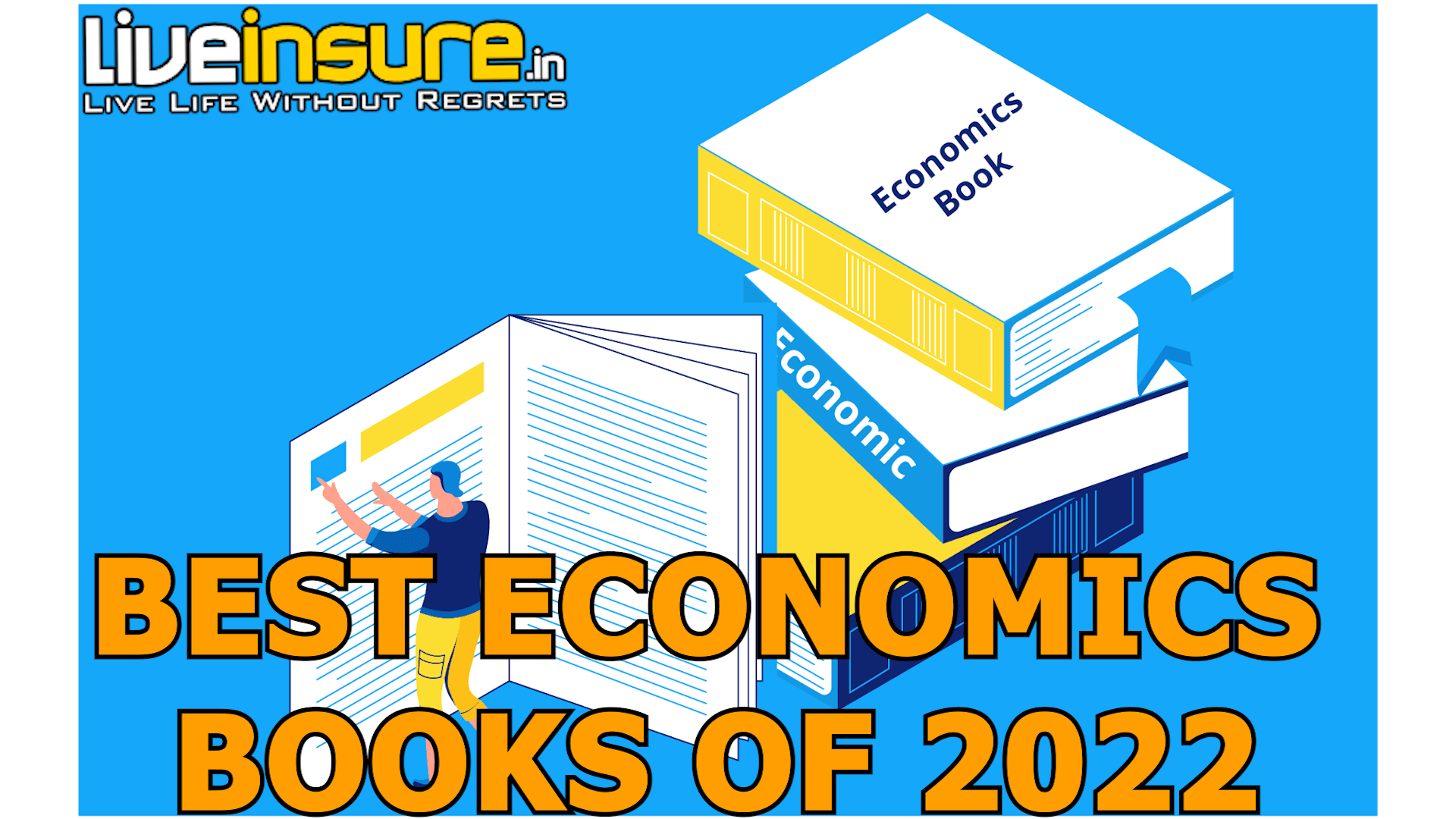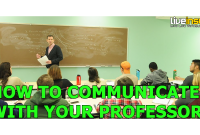Without an understanding of economics, it’s difficult to describe the world around us. Economic data can create public policies and lead movements, and a lack of basic understanding can be a real impediment to progress. No one can evaluate data if they don’t know basic best practices, like the fact that one statistic or number (averages included) can’t tell you much. Luckily, gaining a working understanding of economics and data interpretation is possible without having a degree in advanced mathematics.
This list is compiled entirely of works that are digestible for the curious lay reader, and they cover a lot of highly varied ground. Whether you want to learn the history of economics to gain an understanding of how we ended up with the system we have now, or to find out exactly what a free market economist thinks about, we have you covered.
Best Overall: The Reckoning: Financial Accountability and the Rise and Fall of Nations
:max_bytes(150000):strip_icc():format(webp)/TheReckoning-FinancialAccountabilityandtheRiseandFallofNations-d6d9941fb07747f58d51edb41227c4e3.jpeg)
In his sweeping work The Reckoning: Financial Accountability and the Rise and Fall of Nations, historian and MacArthur Genius Grant winner Jacob Soll1 charts the development of modern global economics beginning with the dawn of accountancy during the Medici reign. Throughout The Reckoning, Soll guides the reader through well-known historical events and enlightens them on the bookkeeping machinations and clever accounting behind such affairs as the Italian Renaissance, the French Revolution, and the 2008 recession.
Soll writes about not only about the role that accounting plays in global affairs but also how financial transparency and ideas about what financial systems owe the people whom they serve have evolved over time. Less of a technical history and more of a social and political one, The Reckoning is accessible and entertaining enough for casual readers but interesting enough for industry professionals who want to learn about the roots of their profession. Soll opts to focus on Western accountancy and finance, so readers should be aware that this historical account is not internationally comprehensive. That said, the insights provided and the backdrop of nearly 2,000 years of European and American history provide more than enough interest to make The Reckoning a worthwhile read.
Best Classic: An Inquiry into the Nature and Causes of The Wealth of Nations
:max_bytes(150000):strip_icc():format(webp)/AnInquiryintotheNatureandCausesofTheWealthofNations1-168ed058da8d4c30836af372eb10d0af.jpg)
Adam Smith’s 1776 classic is still widely read for good reason. If you want to understand the early theories related to the basic mechanics of economics, An Inquiry into the Nature and Causes of The Wealth of Nations is the most direct route. The editor’s note included in one version of this historic work explains well why this book is still recommended by so many economists, entrepreneurs, and historians. Editor J.S. Nicholson wrote, “the student should not forget that there is often more to be learned from the mode of attacking a subject of a great writer than from the mere acquirement of the more correct result due to the critical labours of a succession of minds of ordinary capacity.”
Likening it to Newton’s Principia for mathematicians, Nicholson correctly points out the intrinsic value in reading a work such as this, which is at once unequivocally seminal and no longer representative of the full extent of human knowledge on the subject. Still, Smith’s breakdowns of the interactions among labor, commodities, stocks, trade, and taxes provide insights into 18th century economics that remain invaluable to the curious student of economics today.
Best on Global Economic Progress: Factfulness: Ten Reasons We’re Wrong About the World—and Why Things Are Better Than You Think
:max_bytes(150000):strip_icc():format(webp)/Factfulness-TenReasonsWereWrongAbouttheWorld--andWhyThingsAreBetterThanYouThink1-772dd96ccc08464ba3ce1ac81d7f0d8c.jpg)
When Hans Rosling, Anna Rosling Rönnlund, and Ola Rosling set out to write Factfulness: Ten Reasons We’re Wrong About the World—and Why Things are Better than You Think, they had a specific aim in mind. The trio (a doctor, a software designer, and a statistician) wanted to dispel ignorance about the state of the world, which they found present without exception throughout every class, country, and culture that they studied. Regardless of where their subjects lived or how much education they had, most people tested believed the world to be in a worse situation than it is, based on nearly every conceivable metric.
People believed child mortality rates were higher than they are, that the education of girls was less widespread than it is, and that poverty was getting worse instead of falling by nearly half worldwide, as the data shows. Factfulness became a New York Times Best Seller in part because of the incredible social and economic information that it contains, but it’s also valuable because of the insight that it provides as to why human beings are so negative about the world, why it’s so hard to change minds with data, and what we can all do about it.
Best on Progressive Economic Theory: Good Economics for Hard Times
:max_bytes(150000):strip_icc():format(webp)/Webp.net-resizeimage20-3cf775879e9e4416bb093a511a2b3401.jpg)
Written by Abhijit V. Banerjee and Esther Duflo, MIT professors and winners of the 2019 Nobel Prize in Economics,2 Good Economics for Hard Times earned instant attention for its holistic yet data-driven take on economics and policies. The argument put forth by Banerjee and Duflo is that to meet the challenges faced by our world, people must unite across the aisles, end polarization, and make informed decisions based on data. Through explanations and examples, the duo upends many conventionally held thoughts across the political spectrum, such as that illegal immigration hurts the native-born working class (their data shows it doesn’t) or that buying cheap goods from countries without a minimum wage is a moral ill (their data shows workers benefit from such jobs).
In addition to tackling economic efficiency, Banerjee and Duflo offer up their takes on trends in extreme political rhetoric, global warming, job automation, bigotry, the fluidity and logic of diverse preferences, and the need for an economic system that considers the needs of the individual and the good of the whole in appropriate proportions.
Best on Free Market Economic Theory: Wealth, Poverty and Politics
:max_bytes(150000):strip_icc():format(webp)/WealthPovertyandPolitics1-4c1fef1a2cc840cea14586ff2778b591.jpg)
Famed economist and syndicated columnist Thomas Sowell has authored more than 30 books on topics related to economics, public policy, history, class, culture, education, and race. A professor with a doctorate from the University of Chicago, Sowell is largely considered to be one of the most influential American economists of the 21st century. In Wealth, Poverty and Politics, Sowell conveys the nuts and bolts of free market economic theory against the backdrop of modern debates on income inequality and public policy, which he argues often underplay the production of wealth as a factor.
Wealth production, Sowell claims with plenty of data in tow, relies on a confluence of complex factors including culture, demographics, and geography. He also points out that many of the policies that set out to help people in poverty fail to do so, in part because of the incorrect (and overly simplistic) assumptions upon which they are built. Using historical events and measurable social trends as examples, Sowell shows the reader how different factors have influenced the economic trajectories of countries and people throughout history, and how they will continue to do so.
Best for Beginners: Freakonomics: A Rogue Economist Explores the Hidden Side of Everything
:max_bytes(150000):strip_icc():format(webp)/Webp.net-resizeimage17-03a7cf56037345f895f9229f89f8d7cb.jpg)
If you want to dip your toes in the water of data, human behavior, and economics, but you also want to enjoy a page-turning ride without tons of business-speak, then Freakonomics: A Rogue Economist Explores the Hidden Side of Everything is the book for you. This controversial New York Times Best Seller was written by economist Steven D. Levitt and journalist Stephen J. Dubner and originally published in 2005. It has now sold more than 4 million copies and been turned into a movie, making it a much broader-reaching economics book than most, which makes sense since its subject matter goes far beyond traditional economics.
In Freakonomics, Levitt and Dubner argue that economics at its most pure form is a study in incentives, in why people (and groups of people) do the things that they do and what the impact of those actions is. Using data to explore commonly held beliefs and trends, Levitt and Dubner show the reader that what seems to be true isn’t always true and that many decisions have unintended consequences. Tackling hot-button topics like whether abortion lowers crime (they say yes) and whether good parenting impacts children’s scholastic achievement (they say no), Levitt and Dubner succeed in encouraging readers to look beyond the superficial state of things and explore the data below the surface.
Best Overall: Economics in One Lesson
:max_bytes(150000):strip_icc():format(webp)/EconomicsinOneLesson-dcf5f5507a994451a8bc09a55a771be1.jpeg)
Henry Hazlitt’s “Economics in One Lesson” earned the top spot on our list for its no-nonsense approach to economic theory, the intersection of government and the economy, and the importance of the free market. Written in 1946, it has since sold more than a million copies, a testament to the staying power of Hazlitt’s lessons. Think anti-deficit approaches to the markets and economic liberty to name a few. An economist and journalist, Hazlitt was a founding co-president for the Foundation for Economic Education and an editor of The Freeman magazine.
Best Psychological Take: Thinking Fast and Slow
:max_bytes(150000):strip_icc():format(webp)/ThinkingFastandSlow-eea94f7a2b4c4a569a5d718b0b25b800.jpeg)
Daniel Kahneman’s “Thinking, Fast and Slow” delves into the human mind and the two systems that power everything—one fast, one slow—and how these two systems are responsible for everything from overconfidence in the workplace to cognitive bias to how we make decisions on where to vacation next. But Kahneman takes it a step further, delving into when to trust our intuitions and when not to and how to avoid common pitfalls when making decisions in both our personal and professional lives. Kahneman is a psychologist and winner of the Nobel Prize in Economics.
Best on Income Inequality: Capital in the Twenty-First Century
:max_bytes(150000):strip_icc():format(webp)/CapitalintheTwenty-FirstCentury-cc4d4430282e49158cfab06ff62bad5e.jpeg) \
\A New York Times and Wall Street Journal bestseller, winner of the Financial Times and a McKinsey Business Book of the Year Award, Thomas Piketty’s “Capital in the Twenty-First Century” offers an unparalleled take on the history of wealth inequality in both Europe and the United States and the havoc that such inequality can wreak. The book explains, in no uncertain detail, that when the rate of return in a country is greater than the rate of economic growth, wealth inequality will continue to flourish—and not in a good way. Piketty is a French economist and a professor at the Paris School of Economics and the London School of Economics International Inequalities Institute.
Best for Beginners: Common Sense Economics
:max_bytes(150000):strip_icc():format(webp)/Webp.net-resizeimage18-d1136a06ffa541ccaa01c997478180ac.jpg)
Written by top economists James Gwartney, Richard L. Stroup, and Dwight R. Lee, “Common Sense Economics” answers any beginner’s pressing questions on the genre, from how an economy works to redistribute wealth. In addition to explaining important economic concepts like supply and demand, trade, and private ownership, this pick explains why an understanding of economics is important—and does so in clear, easy-to-understand prose.
Best on Economic History: The Road to Serfdom
:max_bytes(150000):strip_icc():format(webp)/TheRoadtoSerfdom-bd9679dbc7e541139182ae3a6495e6ff.jpeg)
First published in 1944, F. A. Hayek’s “The Road to Serfdom” has been established as something akin to the gospel in the world of economic writing. Hayek’s work served up what was then a controversial warning against state control over the production of goods. It has sold more than 400,000 copies and has been translated into more than 20 languages.
The updated version includes a foreword by Bruce Caldwell, a Hayek scholar, who adds clarification and modern takes on Hayek’s works, which have often been misinterpreted. Hayek, a recipient of the Medal of Freedom and the Nobel Memorial Prize in Economics, taught at the University of London, the University of Chicago, and the University of Freiburg.
Best on Behavioral Economics: Misbehaving: The Making of Behavioral Economics
:max_bytes(150000):strip_icc():format(webp)/MisbehavingTheMakingofBehavioralEconomics-ab1ee16c51f94f178ba9483bfd6733e5.jpeg)
Turning classic economic theory on its head, Richard H. Thaler’s “Misbehaving: The Making of Behavioral Economics” denounces the idea that much of economic theory is based on—the behavior of rational actors. In other words, us. According to Thaler, humans are inherently flawed and easily succumb to bias and emotional decision-making, which sets into motion a ripple effect on the economy. Using this theory, Thaler schools readers on how to avoid these emotional pitfalls and make smarter decisions. Thaler is a Professor of Economics and Behavioral Science at the University of Chicago’s Graduate School of Business and a Research Associate at the National Bureau of Economic Research.
Best on Applied Economics: The Armchair Economist
:max_bytes(150000):strip_icc():format(webp)/Webp.net-resizeimage19-7f8b5bc08bbf4814b24ea35744505dbb.jpg)
Steven Landsburg’s “The Armchair Economist” applies real-world situations to economic theory; think: why do celebrity endorsements sell products? Or, do government deficits matter, even why do women pay more at the dry cleaners. The revised edition of this book tackles all this and more, making the economic concepts that much more understandable. Landsburg is a Professor of Economics at the University of Rochester, and the author of “More Sex Is Safer Sex,” “Fair Play,” two textbooks on economics, the “Everyday Economics” column in Slate magazine.




